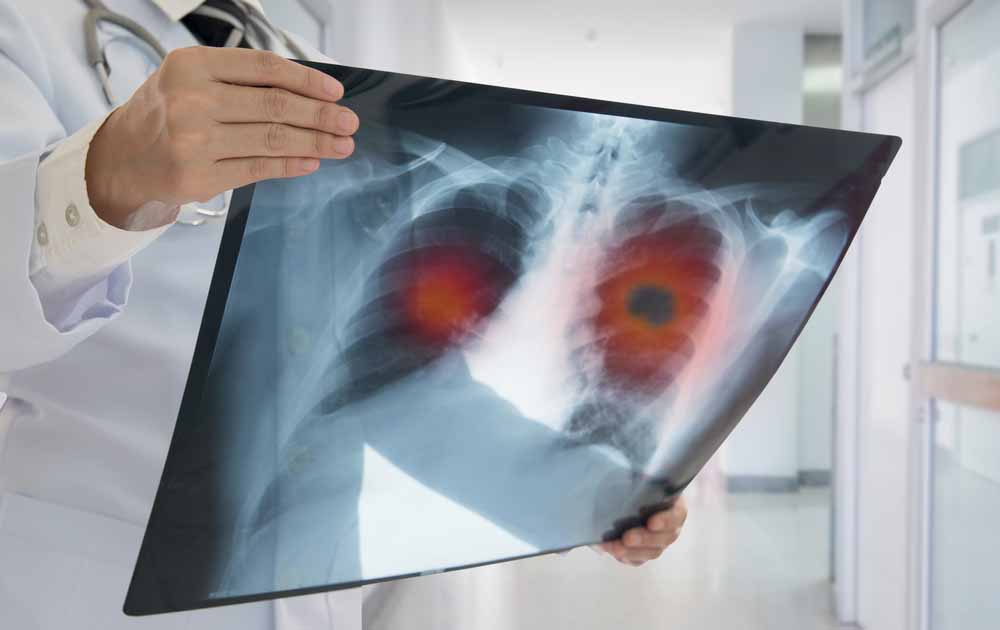The COVID-19 pandemic is directly impacting mortality while indirectly affecting people suffering with other diseases such as cancer.
Cancer patients are at increased risk of contracting COVID-19 and developing severe consequences as a result of the virus. The pandemic has also reduced access to ongoing treatment and care for cancer patients. Furthermore, lower participation in cancer screening programs is reducing the number of cancers detected, which may delay diagnosis and potentially negatively impact outcomes.
Mortality and Morbidity
Cancer patients, particularly those with hematological or lung cancers, are at higher risk from COVID-19 since they tend to be older, suffer from additional comorbidities and are frequently immunosuppressed. They are more likely to receive treatment in a hospital setting, possibly putting themselves at risk of contracting the virus. A study out of China reported that 0.79% of cancer patients had contracted COVID-19 due to hospital visits, compared to a general population rate in the city of Wuhan of 0.37% – a 2.31 times higher risk of coronavirus infection.1
The American Association for Cancer Research has also stated that patients with hematological or lung cancers are at an even higher risk of severe illness from COVID-19. A number of studies have shown that lung cancer was the most predominant type of cancer in those admitted for care and that rates of ICU admission are higher for patients with hematological cancers than for solid tumors (26% versus 11%). Mehta et al’s study of cancer patients in New York who contracted COVID-19 found a case fatality rate of 28% and noted a much higher case fatality rate (55%) in infected lung cancer patients.2
Cancer patients are also more likely to suffer COVID-19 complications than those without cancer. Liang et al reported that cancer patients had a higher risk of developing severe events (intensive care admission, invasive ventilation, or death) compared to patients without cancer (39% versus 8%).3 Dai et al found that COVID-19 patients with cancer had a higher death rate, showing an odds ratio (OR) of 2.34, higher rates of ICU admission (OR 2.84), higher rates of having at least one severe or critical symptom (OR 2.79), and higher chances of needing mechanical ventilation than COVID-19 patients without cancer. 4
Preliminary reports suggest that regimens of chloroquine or hydroxychloroquine, alone or with azithromycin, are not useful and could be harmful in patients with COVID-19. New research shows that cancer patients treated with the drug combination are three times more likely to die within 30 days than those who received either drug alone.5
Cancer Referrals
Since the start of the pandemic, cancer referrals have dropped sharply in many countries around the world. Figures from NHS England show that cancer referrals from general practitioners fell by 66% in the week ending April 19, 2020 compared with the week ending March 1, 2020.6 Across the U.K., the NHS would normally see 30,000 new cancer patients in April but that number was expected to be just 5,000.7
Figures from Ireland show that referrals for suspected cases of skin cancer fell by 71%, lung cancer by 61%, breast cancer by 55%, and prostate cancer by 50%.8 The Netherlands reported an average weekly decline of 40% in cancer incidence since the end of February, but recent data now shows that cancer incidences are returning to normal.7 Australia also reported a reduction in cancer incidence, with cancer referrals falling by up to 30% compared to the same time last year, while the pathology sector has seen a 50% drop in routine testing.9
Impact on Cancer Screening, Treatment, and Outcomes
Cancer screening services in many countries have been cancelled, meaning that a significant number of early cancers are left undetected. Clearly, the longer it takes to be referred for suspected cancer, the more likely it is that a patient may be diagnosed with a more advanced stage of cancer, ultimately impacting overall survival. Figures from the U.K. suggest that over 2,300 cancer cases are likely to go undiagnosed each week, resulting in a huge backlog of cases.10 Furthermore, there have been significant reductions in pathology and radiology testing.
A survey by the American Cancer Society reported that 27% of patients undergoing active treatment had treatments delayed and that there have been major declines in attending healthcare services by cancer patients or those with suspected cancer.11 Chemotherapy visits in England and Northern Ireland fell by 60%.12
Lai et al estimated excess mortality in people with cancer as a result of the dramatic reduction in cancer services. The model projected 6,270 excess deaths at year one in England and 33,890 excess deaths at year one in the U.S. The research highlighted the severe consequences for cancer patients as a result of disruptions in the health service.12
Further consequences of the pandemic include disruption to clinical trials. Many have stopped recruiting patients while others have been put on hold, resulting in long-term delays to drug development and cancer treatments.
Summary
Early observations show that COVID-19 is having a significant impact on cancer patients and their outcomes, both in the short and long term. Hopefully, with ongoing restoration of standard healthcare services, cancer patients, as well as those requiring cancer screening, will have safe access to the care needed.



